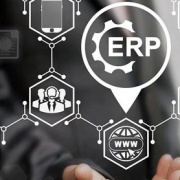Is It Time to Replace Your Legacy ERP System?
Enterprise resource planning (ERP) systems have been around for decades as a game changing tool to help organizations manage various business processes. We are in the digital age with many of our personal and professional resources being entrusted in the digital space. It’s no surprise that ERP systems have shifted over to the cloud, providing businesses with more accessibility. It’s also no surprise that there are a large number of businesses still running legacy, or on premise, ERP applications. The current pandemic had many people shift to a work from home environment, forcing businesses to create a remote workplace. While the cloud is not a new technology – or the primary choice over on premise solutions – it became a more appealing solution for the sudden switch to remote/hybrid work spaces. Though not every business realizes when it’s time to switch over. Technology expert Claus Jepsen shares an article on readwrite.com pointing out the signs that will let your know if your legacy ERP system needs to be replaced – preferrably in the cloud.
- You’re spending more time and money modifying the configuration and customization(s) of the ERP to accommodate changes in your business processes.
- You’re finding data integrations increasingly complex.
- Employees are unhappy with the ERP system.
When the pandemic hit in 2020, Gartner coined the term “composable ERP” to describe an ERP approach that incorporates agility and flexibility by integrating multiple applications and platforms. This modern strategy, Jepsen notes, enables mid-sized enterprises to adapt quickly when markets are disrupted (i.e. the COVID-19 pandemic). The cloud makes it possible for businesses to be flexible and control scalability, something the pandemic challenged all of us to consider.
Making the decision to replace your legacy ERP system is only half the battle. Now you’re tasked with finding the right cloud-based solution, determining if it fits in your budget, choosing a reputable vendor, and deciding what tools within an ERP system will increase your overall productivity. Jepsen concludes when you take all of these factors into consideration, they is a vast savings potential that a modern, cloud-designed ERP can provide, which can be an exciting possibility within a business’s reach.


